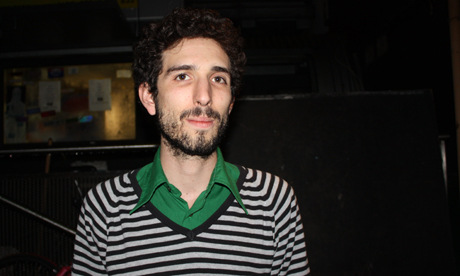Hackney Council agrees new police powers to combat problem drinking

A Michaels, Mare Street: “It will just give the police an opportunity to pick on people.”
Hackney Council’s Regulatory Committee has approved (Wednesday 17 March) plans to give the police new borough-wide powers to confiscate alcohol from a minority of drinkers whose violent or anti-social behaviour is causing problems for others in public places.
This follows last year’s consultation with residents, 63 per cent of whom said they were in favour of making the whole of Hackney into a “Designated Public Place Order” (DPPO) to manage anti-social behaviour related to excessive drinking.
The new powers, which will come into force by the end of May, are not aimed at those enjoying a glass or two of wine outdoors or a beer in a Hackney park, but at a small number of people whose excessive drinking has become a threat or a nuisance to other people.
Within a DPPO, the police can ask drinkers to stop, and can confiscate their alcohol if they refuse.
It is an offence for drinkers in a DPPO to refuse to give up their alcohol when asked to by a police officer. Under the borough-wide DPPO, the police can now give £50 fixed penalty notices to drinkers who do not instantly comply.
The police will focus their efforts on preventing anti-social drinking from escalating in places identified as ‘problem spots’ by local people as well as Safer Neighbourhoods teams and wardens.
Without the preventative powers permitted under a DPPO, the police have to wait until an alcohol-related incident has escalated into a more serious offence, such as causing harassment, before a ‘problem drinker ‘can be dealt with.

Max Sobol, outside Ochre Works, Gillett Square
Max Sobol, outside Ochre Works, Gillett Square, Dalston: “The Controlled Drinking Areas won’t stop people drinking or getting drunk. The issue is not where people drink, but why, and the council should address the real causes of anti-social behaviour.”

Danielle O'Halloran, The Laundry Room, Broadway Market
Danielle O’Halloran, at the Laundry Room, Broadway Market: “It’s an unimaginative way of dealing with the larger social problem.”

Phoebe Billington and Sarah White, The Dove Freehouse and Kitchen, Broadway Market
Phoebe Billington and Sarah White, the Dove Freehouse and Kitchen, Broadway Market: “There is the worry that the police could exercise their powers too strictly, and there should be strict guidelines to set out how they exercise their discretion. However, the problems of anti-social behaviour in public are not necessarily caused by just drinking, and there is a need to address those other issues.”
More on drinking.
